An Insider’s Story Of Fête De La Musique In The Philippines
Longtime producer Giselle Tomimbang gives a behind-the-scenes account of how Fête PH has grown in the past three decades.
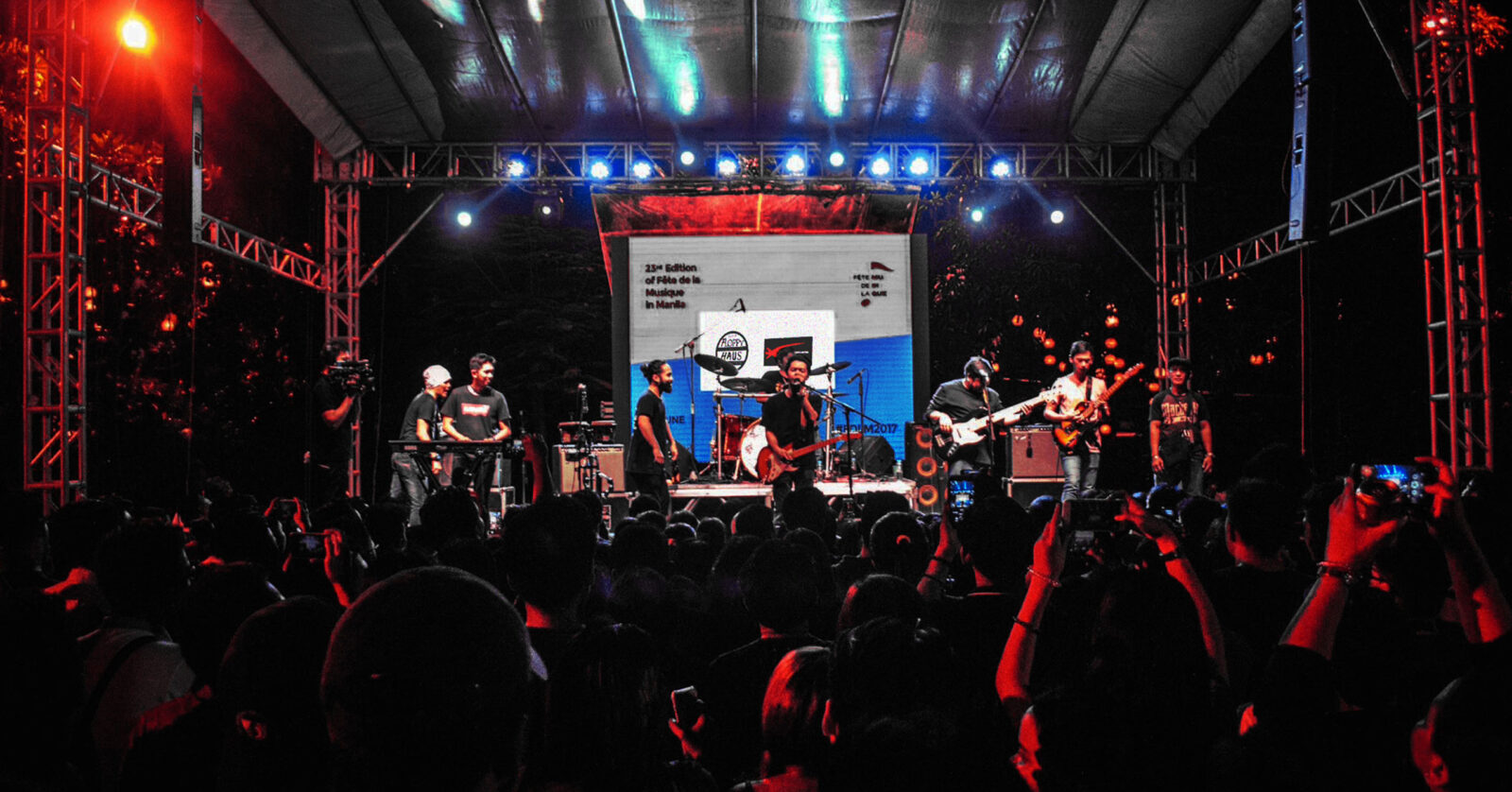
Jensen and the Flips at Fête De La Musique 2017, courtesy of Fête PH
Jensen and the Flips at Fête De La Musique 2017, courtesy of Fête PH
Every year, the month of June is much anticipated by Filipino music fans because of Fête De La Musique (or World Music Day), an annual celebration of live music that began in Paris, France in 1982. At present, it is held in around 120 countries and 700 cities worldwide every year during the summer solstice. The first Fête De La Musique in Manila was organized in 1994, with a single stage set up on the streets of Malate — a practice that continued in the next few years. In 2000, Fête head producer Len Francisco of Alliance Francaise de Manille came up with the idea of having a multi-stage format, so that attendees could move from one stage to another on foot and enjoy a variety of genres without paying any admission fees.
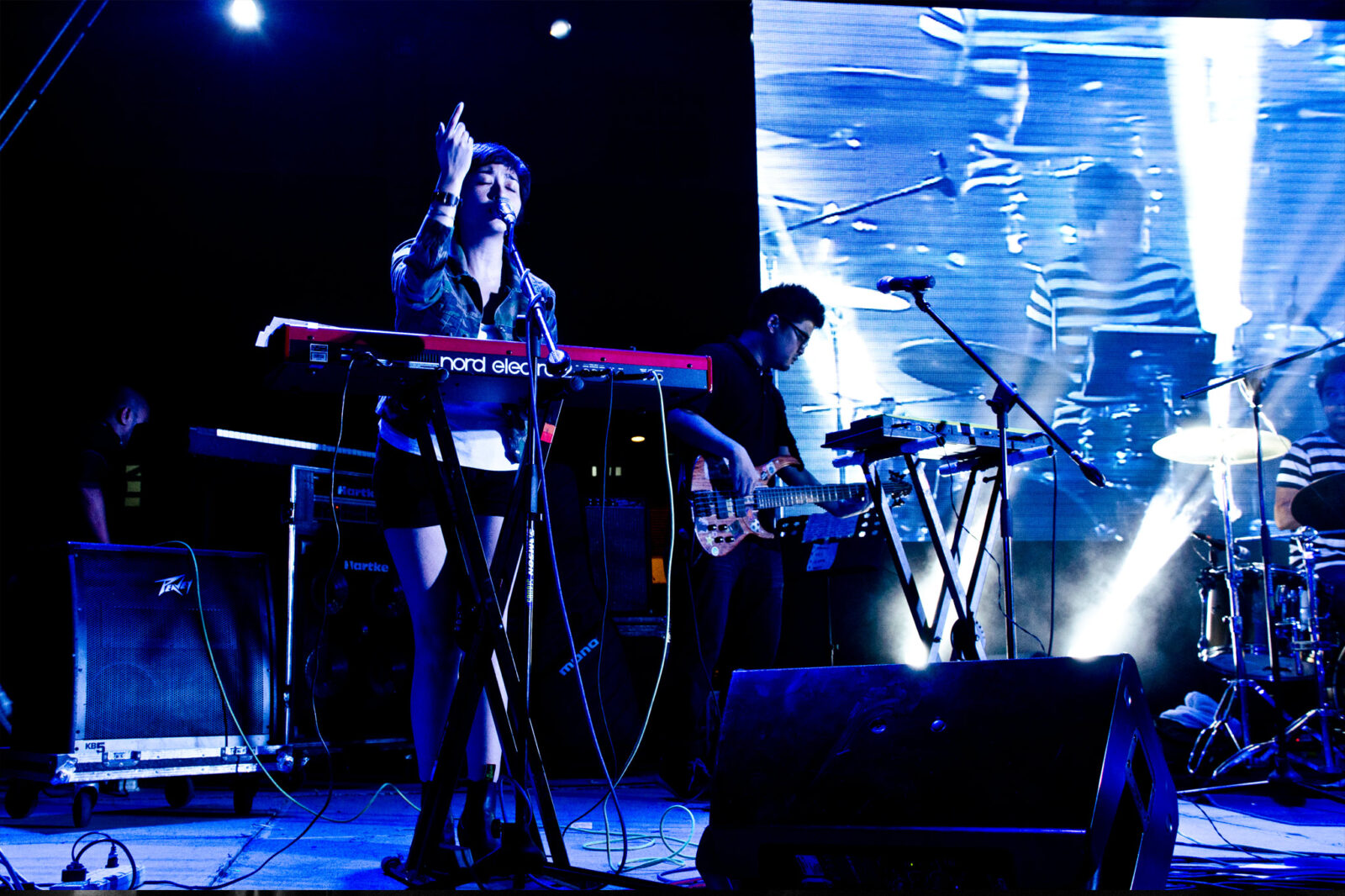
Up Dharma Down at Fête De La Musique 2013, courtesy of Fête PH
Over time, Fête De La Musique got bigger and bigger, moving to venues like Metrowalk in Pasig, the Mall of Asia Grounds in Pasay, and Bonifacio Global City in Taguig, with a mix of indoor and outdoor stages that still allowed for stage-hopping throughout the day.
Since 2012, Fête De La Musique has been held in Makati City, with Main Stages at A-Venue (before it was demolished) and Greenbelt, as well as Pocket Stages in nearby venues like saGuijo Cafe and various establishments in the Poblacion area.
“2012 was definitely a milestone as it was held on a long stretch on Makati Avenue,” shares longtime Fête organizer and producer Giselle Tomimbang of B-Side Productions. “We apparently caused so much traffic that day, and sadly we haven’t been able to hold it on Makati Avenue since.
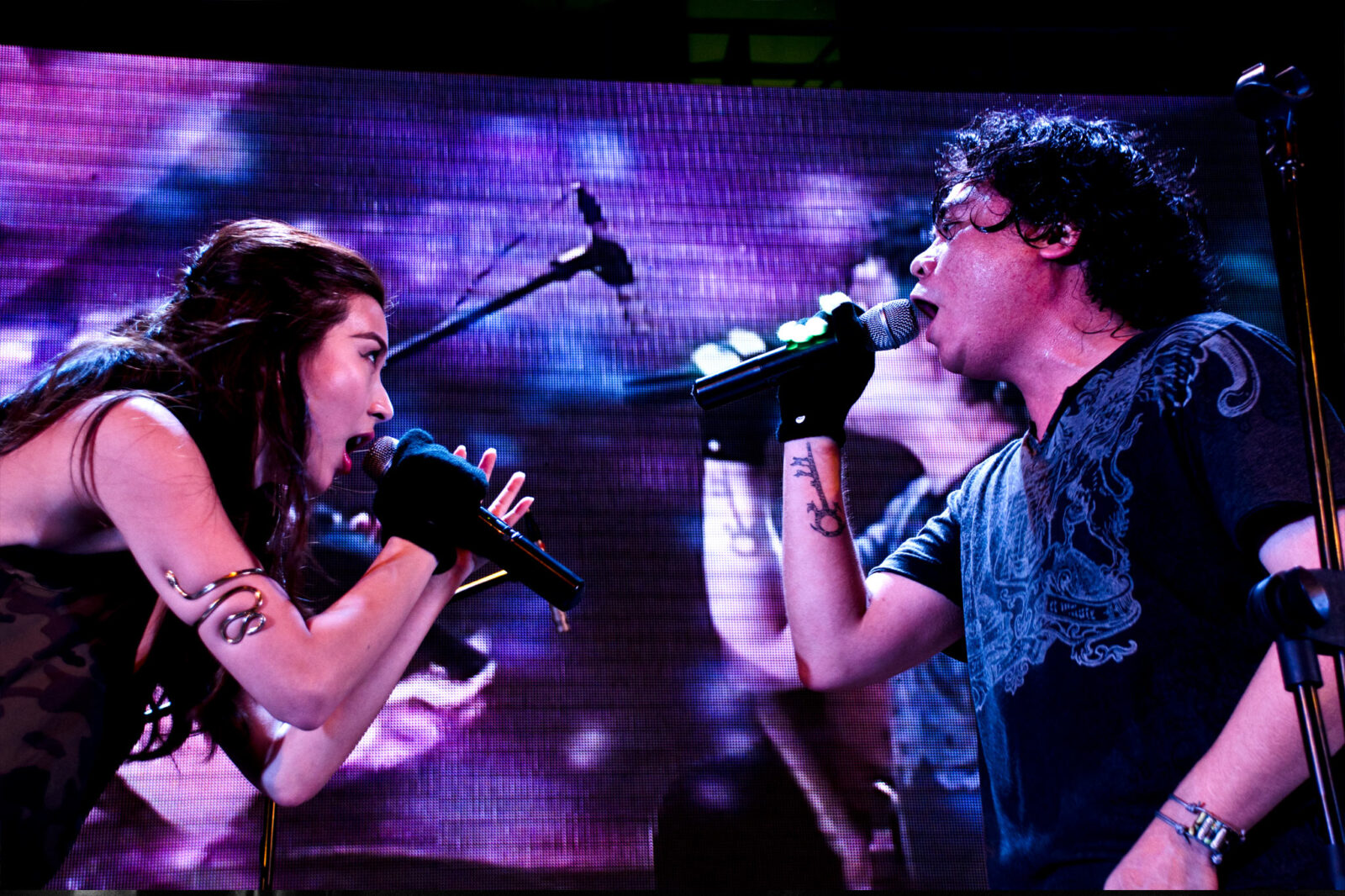
Nicole Asensio with Razorback at Fête De La Musique 2013, courtesy of Fête PH
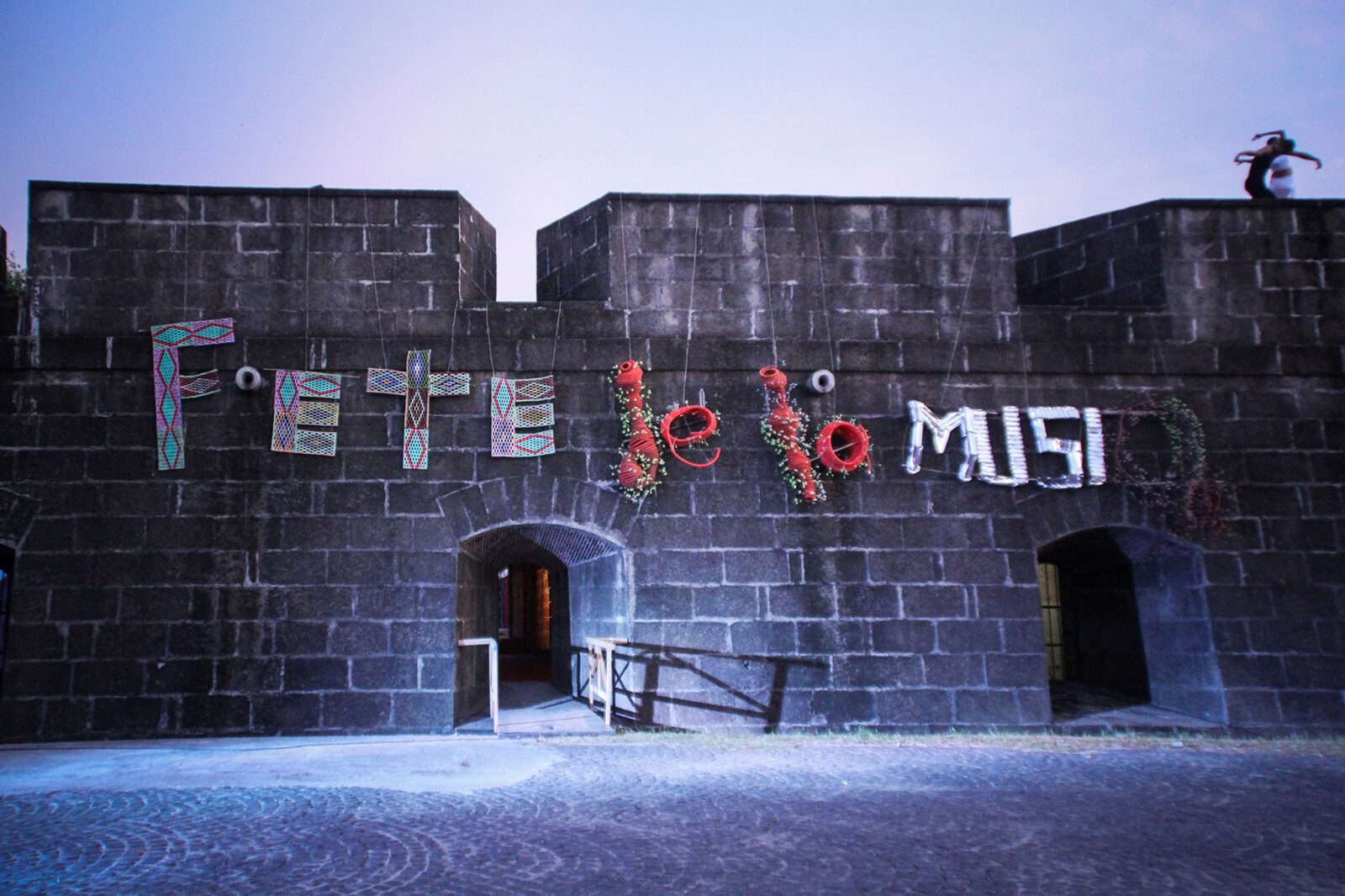
Intramuros Main Stage at Fête De La Musique 2014, courtesy of Fête PH
Tomimbang had been involved with producing Fête De La Musique since 2005, a year after she attended her first Fête in Eastwood City, a memorable one for her as she recalls the Main Stage collapsing over Radioactive Sago Project because of “a freak ipo-ipo (a small tornado).” “My role [in 2005] was to essentially execute Ms. Len’s vision of having a multi-stage, multi-genre festival,” she narrates. As the years progressed, Tomimbang’s roles have evolved to include lineup curation, supplier sourcing, stage management, scriptwriting, finding sponsors and media partners, and in recent years, “creative direction in terms of theme and advocacy, forging strategic partnerships, and overall project management.”
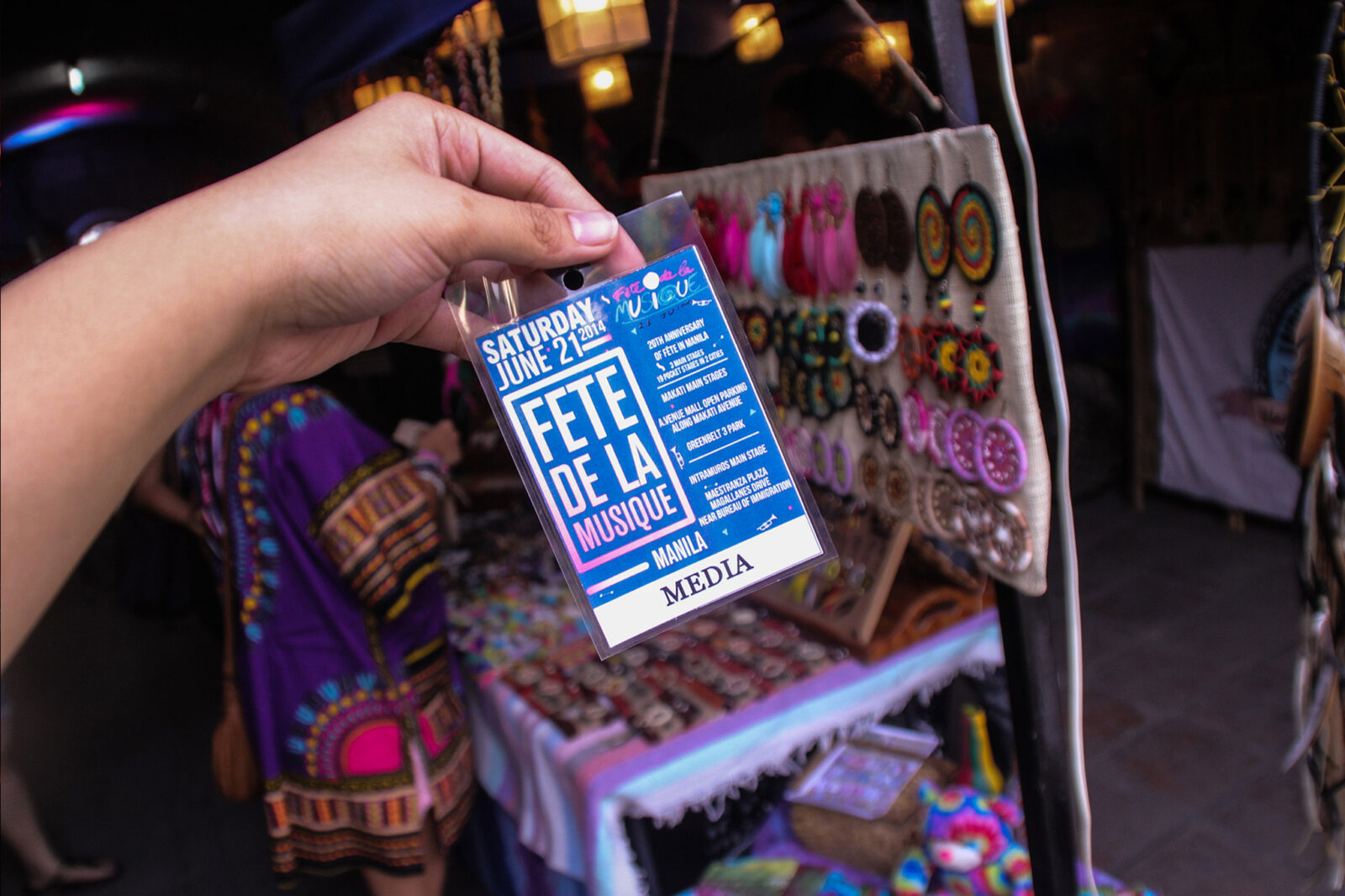
Fête De La Musique 2014 media pass, courtesy of Fête PH
In 2011, Alliance Francaise reached out to Anna Sobrepeña-Ong of B-Side to co-produce Fête De La Musique, and she asked Tomimbang to handle the artistic programming of that year’s event. It was the beginning of Fête De La Musique as we know it today, with an abundance of Pocket Stages that represent even more specialized subgenres and subcultures, like Dream Pop/Shoegaze, Post-Rock/Math Rock, New Wave, Spoken Word, Bedroom Beats, and more, each organized by independent productions like Vandals On The Wall, A Spur Of The Moment Project, Red Ninja, UNKNWN, and Furiosa, just to name a few. “When [B-Side Productions] started co-producing it in 2011, we started inviting pocket stages to be independently produced, which has been a catalyst for Fête to scale in terms of diversity of artists and audiences, and [it] became more of a collaborative effort across scenes and subcultures in Manila,” says Tomimbang.
“The original intention of Fête since its inception has been to make all kinds of music accessible to as many people as possible,” she explains. “ As such, we have always been inclusive in our approach to other entities and productions who have wanted to stage their own concerts in line with Fête De La Musique. And since we have had long-standing relationships with most, we are familiar with the caliber and quality of their shows. It has been beneficial as a whole, as our goal has been to create safe spaces for community-building through music.”
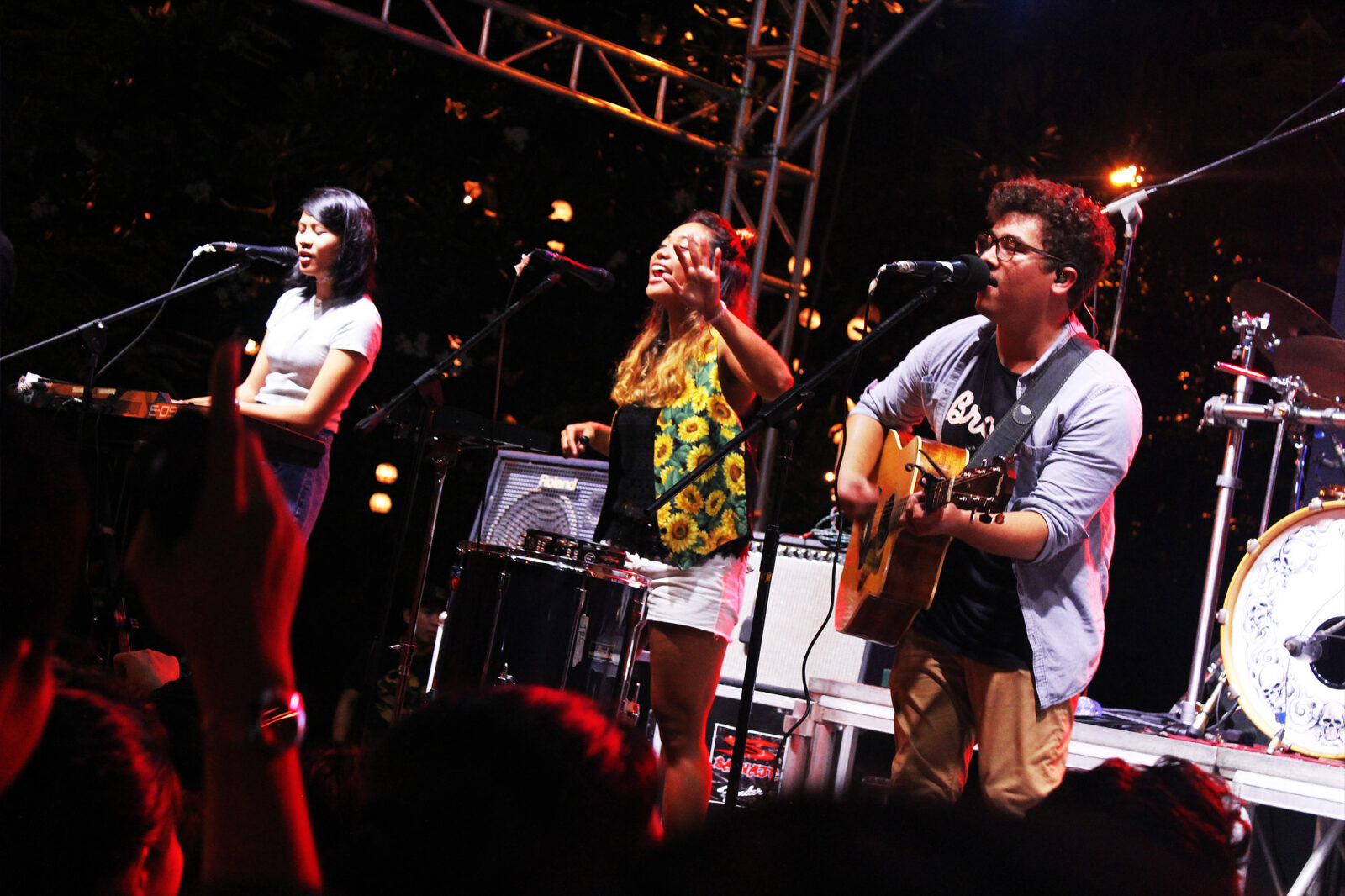
The Ransom Collective at Fête De La Musique 2017, courtesy of Fête PH
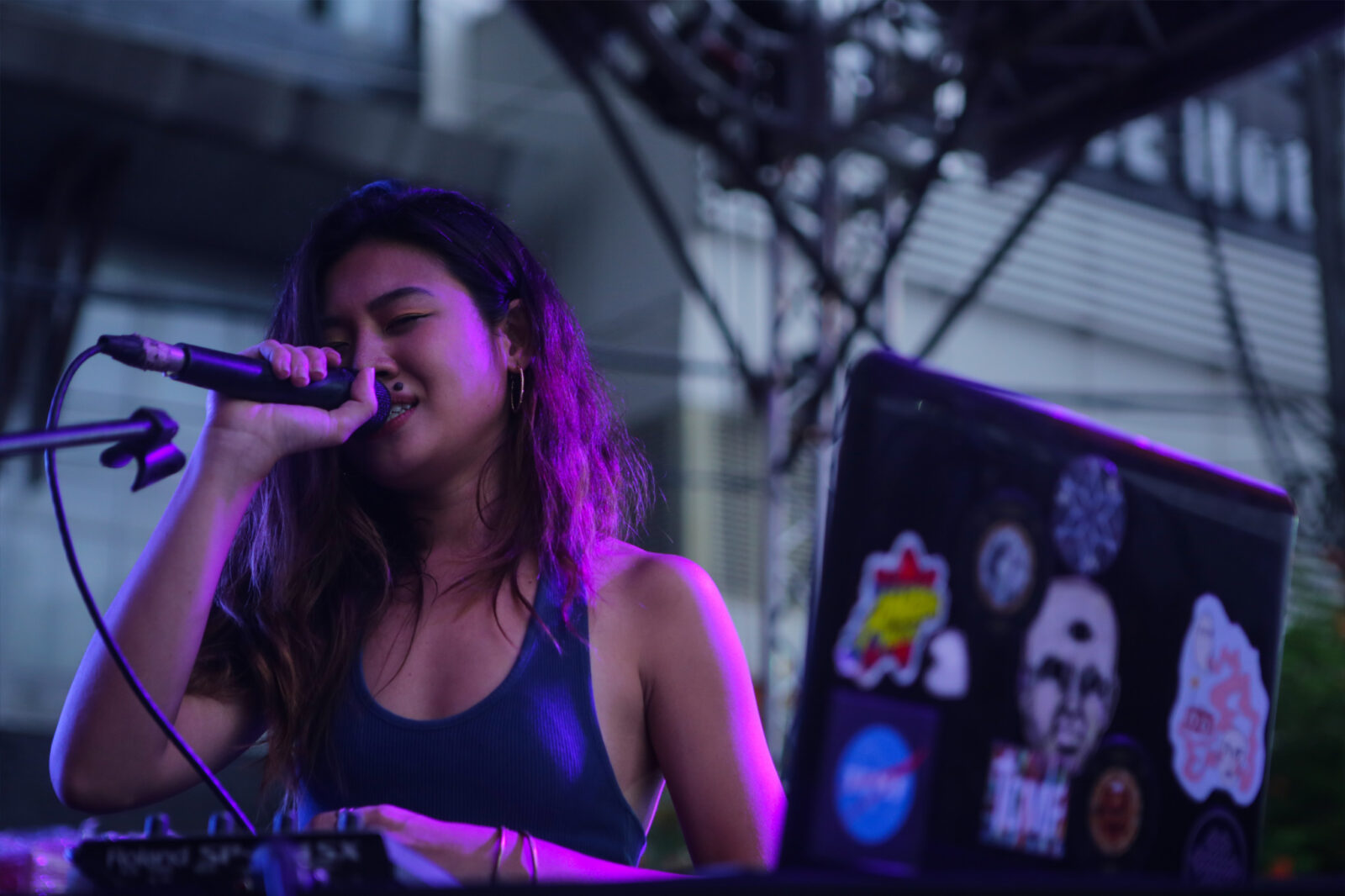
August Wahh at Fête De La Musique 2018, courtesy of Fête PH
Since then, Fête has achieved a number of milestones in the last decade. “2018 was the year we launched an app to help people navigate the festival and branded ourselves as Fête PH,” says Tomimbang. She also mentions the ‘Brass Against The Machine’ performance that year when Pochoy Labog of Dicta License joined Brass Pas Pas Pas Pas on the main stage to perform Rage Against the Machine songs.
“2019 was the 25th anniversary, and we are proud to have been able to produce a mini-documentary, as well as an epic 25-minute production number with 79 artists,” she continues, adding that with approximately 40,000 attendees and a record number of 52 simultaneous pocket stages, it was the most attended Fête De La Musique in the country to date.
Even the pandemic didn’t stop Fete from happening; in 2021, Fête De La Musique held #FêteFromMyIsland, a four-day online show that featured pre-recorded video performances from different artists from all over the country, to the delight of music fans who missed seeing their favorite acts live.
In recent years, Fête De La Musique has expanded both geographically and in duration — the addition of Destination Stages held in places like Baguio, Pampanga, Laguna, Cebu, and Davao on dates other than the Manila shows has extended the festivities from one day to roughly a whole week or more. This year — which also marks its 30th year in the country — Fête PH will launch with its Main Stage at the Greenbelt 3 Park on June 21, to be headlined by pFeL and Greem of French DJ collective C2C. A week later, the Makati Pocket Stages will hold their shows on June 28.
According to Tomimbang, this year will also feature the most Destination Stages nationwide so far, “from Baguio to Tagaytay to Puerto Galera to Baler to El Nido to Siargao to Davao to Cagayan de Oro to South Cotabato, just to name a few,” aiming to draw another record-breaking number of attendees from all over the Philippines.
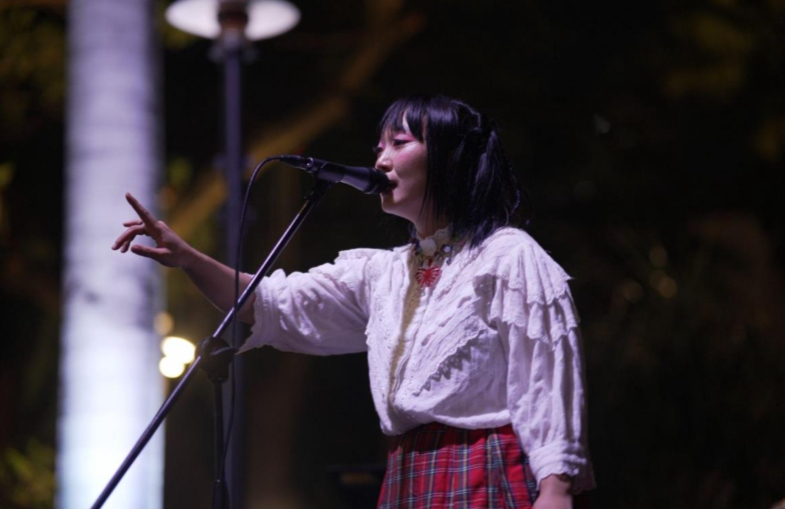
Ena Mori at Fête De La Musique 2023, courtesy of Fête PH
Despite the increasing number of annual music festivals and big concerts in the country, Fête De La Musique remains among the most eagerly awaited by live music fans, and is more relevant than ever as Fete PH marks its 30th year this June. “We believe that Fête PH’s staying power is really due to the commitment of the Fête PH family — the artists, the producers, the attendees, etc. — all of whom have been investing time and energy into this celebration year after year, and birthing new relationships and deepening existing ones,” affirms Tomimbang. “Also, it doesn’t hurt that it’s absolutely free.”
“The artists and fans are still excited,” she adds in conclusion, “because it’s one of those rare times that the lines between artist and audience are blurred, as fellow musicians support each other in their different stages, and fans have the opportunity to be exposed to a plethora of artists to their heart’s content.”
Follow Fête De La Musique PH on Facebook, Instagram, and TikTok for more updates on this year’s events.
